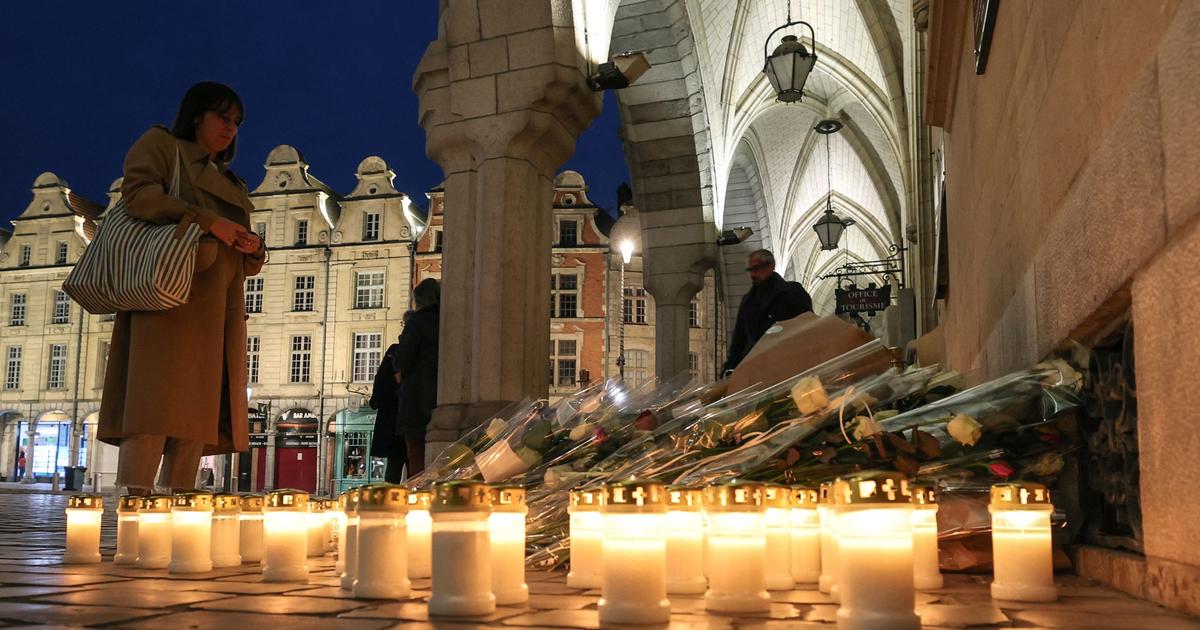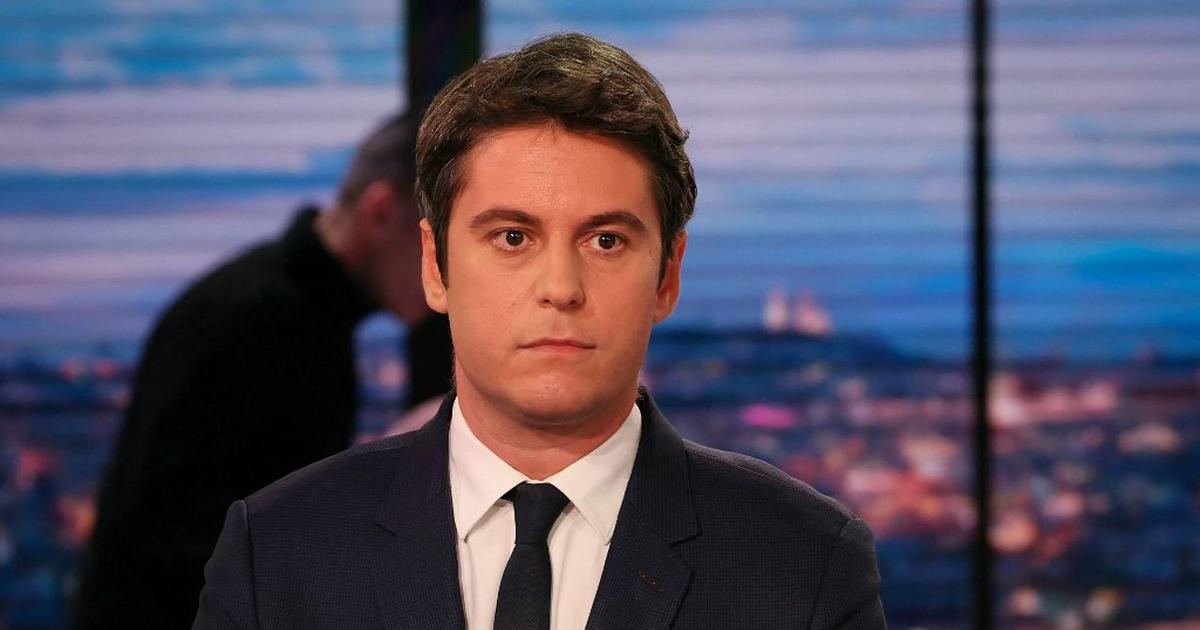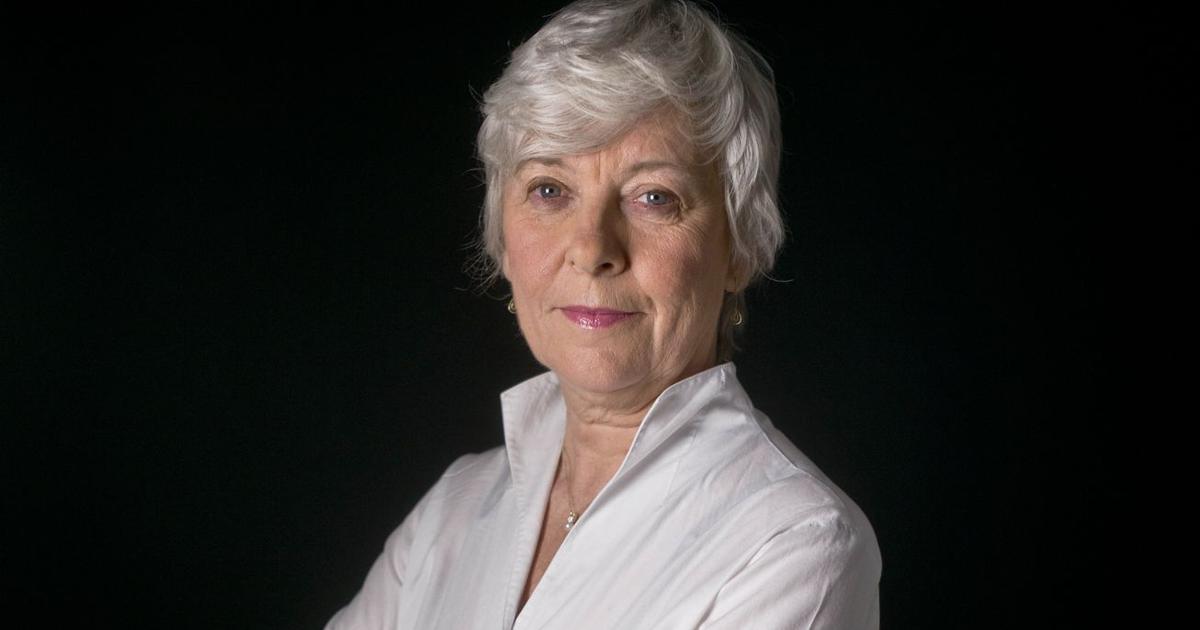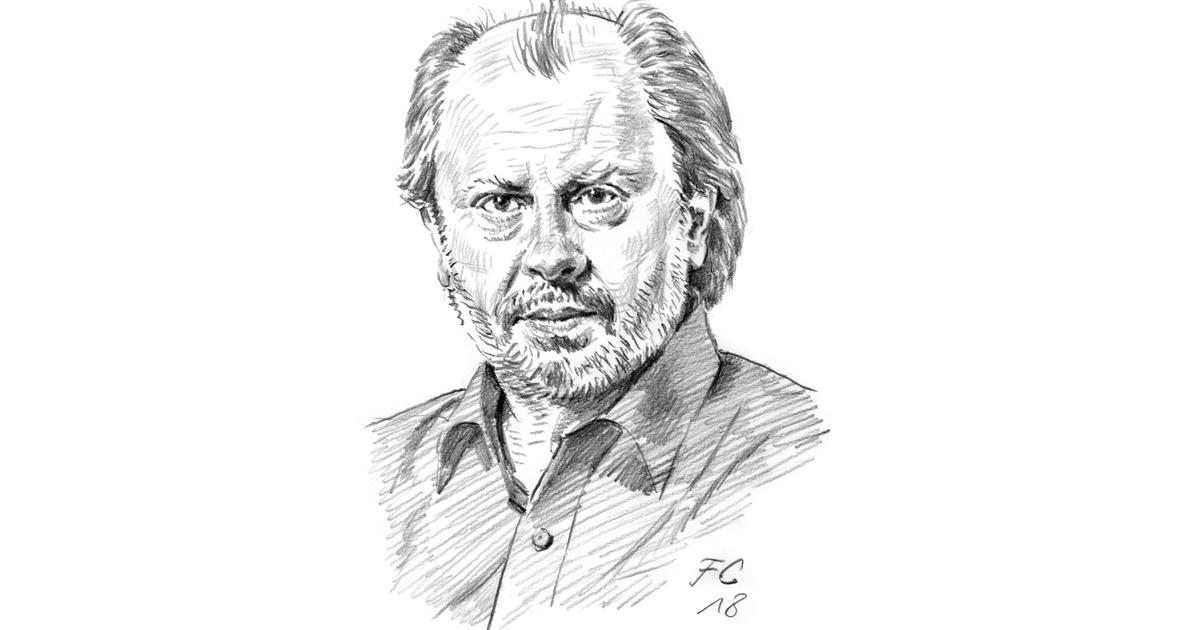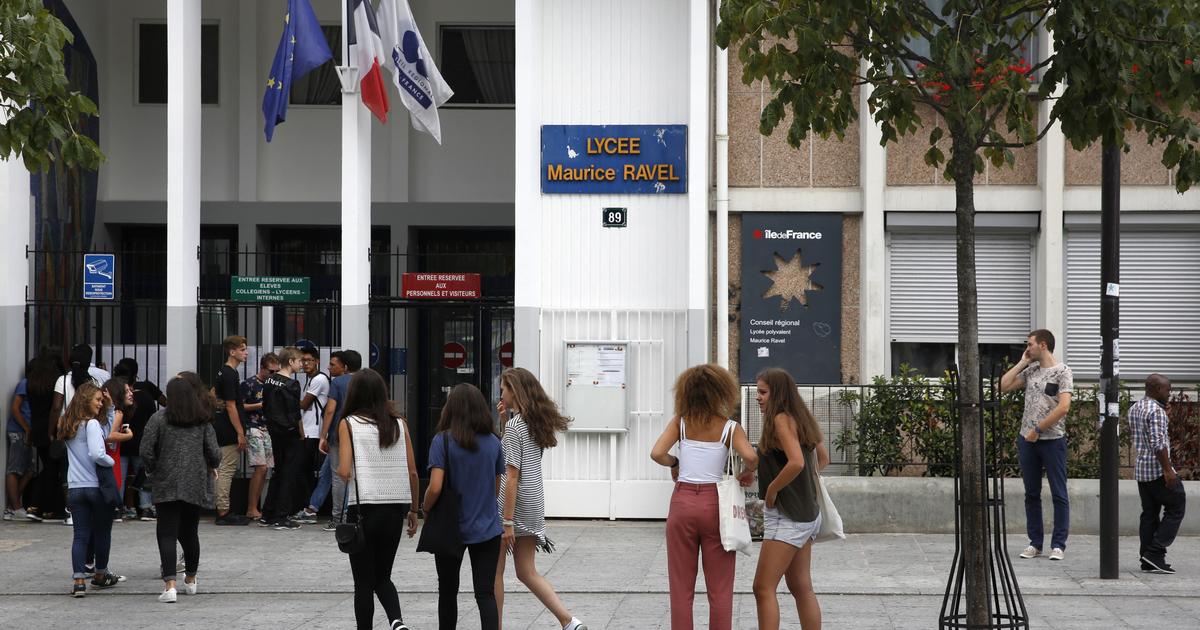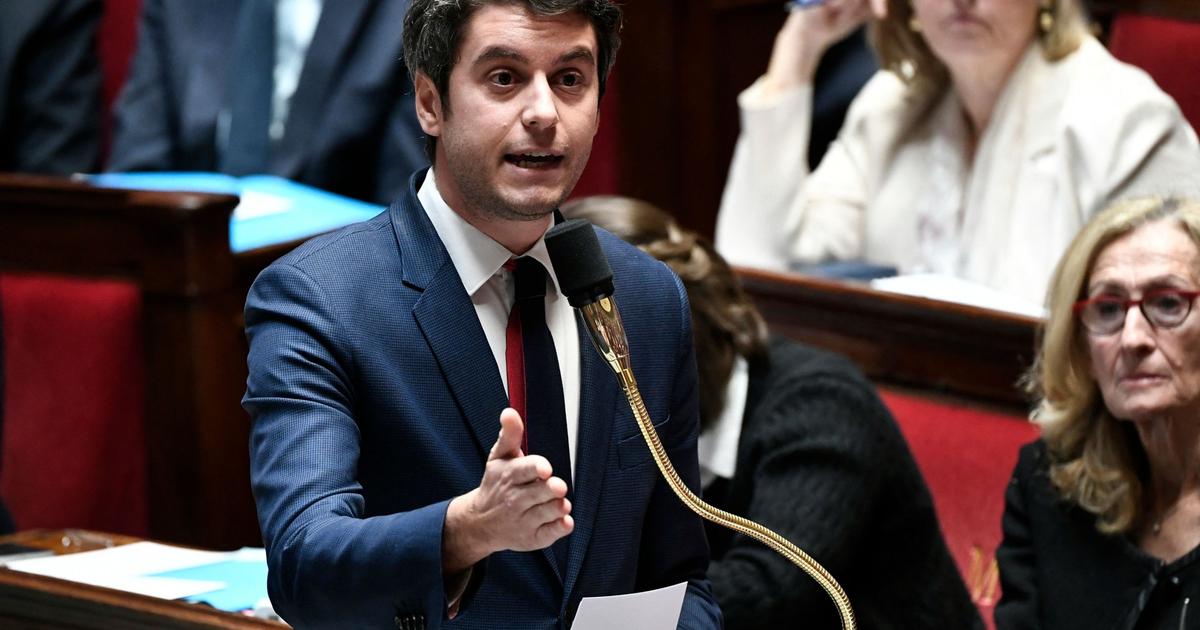Icon: enlarge
People remember the victims of an Islamist bomber in front of the Notre Dame church in Nice
Photo: Valery Hache / dpa
Militant Islamism follows a murderous and inhumane ideology.
And no European country has suffered as much from these ideas as France.
There are only a few days left to the fifth anniversary of the November 13, 2005 attacks on the Bataclan and the cafes and restaurants in central Paris.
130 people were murdered and more than 600 injured.
Three quarters of a year earlier, the attacks on the satirical newspaper "Charlie Hebdo" had traumatized the country.
As early as 2012, an Islamist assassin in Toulouse had deliberately executed Jewish people.
And in 2016, a terrorist murdered 86 people in a truck on the national holiday in Nice.
There is no other European country from which so many citizens have traveled to the territory of the "Islamic State" - almost 2,000 French rushed to the Caliphate to fight and live there.
Many, but by no means all, had a migration background.
The radicalization of young French Muslims in the suburbs of the metropolises has been a pressing problem for years that no government has been able to get a grip on.
Authoritarian empowerment fantasies
So France already knows the poison of militant Islamism far too well.
In recent weeks it has been confronted with it again: A teacher who wanted to discuss freedom of expression with his students using Mohammed cartoons was brutally murdered.
And now an attacker killed three people again on Thursday in Nice - in a church.
Each of these acts makes you stunned and angry again.
They are totalitarian attacks on the freedom of a liberal, western society.
Radicalized, ideologically deluded assassins live out their authoritarian fantasies of empowerment.
They usually have one goal: to raise yourself above others, to feel powerful.
A young unemployed youth can become a star in the jihadist cosmos with an inhuman act of blood.
And it can shake a whole society.
Icon: enlarge
President Macron in Nice
Photo: Eric Gaillard / dpa
That is the second, the fundamental goal of Islamist terror: to attack Western societies from within and to divide them.
In the ideology of the "Islamic State" it was always said that the attacks would have to wipe out the so-called "gray zone" of togetherness, in which Muslims live peacefully with non-Muslims - this coexistence is considered a sin by the ideologues of terror.
Muslims who live naturally and well integrated as citizens of a western democracy contradict this totalitarian ideology.
The Islamists have at least one common goal with another radical part of the political spectrum: the right-wing extremists.
Various societies are also a thorn in their side for them, and they too do not want Muslims and non-Muslims to live together peacefully.
It is therefore no coincidence that a right-wing extremist assassin showed up in Avignon on Thursday just a few hours after the attack in Nice and was prevented from killing just in time.
Jihadists and right-wing extremists, Islamists and Islam-haters - they are mutually dependent, they belong together and they are both enemies of a liberal, inclusive society.
Freedom of expression must be defended
There is of course only one answer to the Islamist attacks on freedom of expression these days.
President Emmanuel Macron gave it: Freedom of expression must be clearly defended, and of course that includes caricatures.
And militant Islamism must be pursued and eradicated with all might by the security authorities.
However, Islamism also has a breeding ground that must not be forgotten.
On the one hand, of course, there are the radicalizers on the Internet, the YouTube academies, where assassins are bred.
But there is also a social reservoir from which many of the extremists come: France's suburbs with their underprivileged young people, who are also economically on the fringes of society - France's politicians have not been able to better serve them through the education system and the economy for many decades integrate, they remain on the margins of society for generations.
That too has meant that the totality of Islamist ideologies could spread so well here.
"Jihadists and right-wing extremists, Islamists and Islam-haters - they are mutually dependent, they belong together and they are both enemies of a liberal, inclusive society"
The more cruel acts a country has to experience, the more difficult it is for many to differentiate - and the more resentments are directed against Muslims as a whole.
The Islamist attacks in France in the past have managed to unite large parts of society against terrorism - but at the same time it has long since become socially acceptable in France not only on the right-wing extremist fringes of politics to not only attack the Islamist terrorist ideology, but also to be critical of the French Muslims as a whole.
There are more Muslims in France than anywhere else in Europe, and of course the vast majority of them by no means follow militant Islam.
But this fact is always lost in these troubled times.
Criticism of Islam instead of Islamism
In France, fundamental criticism of Islam has penetrated the mainstream from the right-wing margins in recent years.
A right wing like Eric Zemmour continues to write in the conservative newspaper "Le Figaro" and spread the thesis that militant Islamism and Islam are basically one and the same thing.
Marine Le Pen and her right-wing extremist "Rassemblement national" have been spreading such ideas for a long time, but one no longer hears them only on the margins.
The most recent example is Macron's Interior Minister Gérald Darmanin, who spoke out against "communitarian" halal sections in supermarkets and alleged that they endangered the secular foundations of the republic.
The term "Communautarisme" is a dirty word in France - it denotes a worldview that upholds the ethnic or religious peculiarities of population groups and does not want to subordinate itself completely to the secular dominant culture of the French Republic.
The term has now become a code for worries about a Muslim parallel society.
The statements of the interior minister were sharply criticized by many, including the former President François Hollande: Here a "mixture" is being made.
In a speech, President Macron also casually criticized Islam as a religion that was "in crisis worldwide".
That was also not well received by many.
Turkish President Recep Tayyip Erdogan, who has long been in conflict with Macron over gas reserves in the Mediterranean, saw this as a welcome opportunity to attack.
He also used the Mohammed cartoons, which are currently being reprinted in France out of solidarity, for his perfidious attack.
Erdogan berated Macron as insane and sent his digital propaganda troops to fight France - the accounts of the Muslim Brotherhood spread calls for boycotts, and there were protests against France in parts of the Islamic world.
Ironically against the country that had just been the victim of a murderous act by Islamists.
Erdogan played a cynical, perverse game
Erdogan played a cynical, perverse game - and he is at least indirectly complicit in the renewed attack this week in Nice.
With his attacks he created the heated climate that led to the cruel, renewed bloodshed in the church.
Of course, this controversy and the renewed assassination also darkened the social climate in France once again.
It is a sad conclusion to be drawn at the end of this week: Islamist terror is working, it not only manages to spread fear and horror, but also to exacerbate social divisions - and to fuel political controversies that lead to new acts of terrorism to lead.
France is already in a depressive phase due to the renewed corona lockdown.
Islamist terror hits the country at a particularly vulnerable time.
France has suffered from Islamist terror like no other European country - and seems deeply shaken.
It rightly defends its values.
But it is unfortunately pessimistic - shortly before the anniversary of the Bataclan attacks - that terrorism is deepening divisions in France.
And that the country cannot find an answer either politically or socially.
Icon: The mirror




